Modern Isonomy
Modern Isonomy
Democratic Participation and Human Rights Protection as a System of Equal Rights
An Essay
Gerald Stourzh
TRANSLATED BY GERALD STOURZH AND CYNTHIA PECK-KUBACZEK
The University of Chicago Press
Chicago and London
The University of Chicago Press, Chicago 60637
The University of Chicago Press, Ltd., London
2021 by The University of Chicago
All rights reserved. No part of this book may be used or reproduced in any manner whatsoever without written permission, except in the case of brief quotations in critical articles and reviews. For more information, contact the University of Chicago Press, 1427 E. 60th St., Chicago, IL 60637.
Published 2021
Printed in the United States of America
30 29 28 27 26 25 24 23 22 21 1 2 3 4 5
ISBN -13: 978-0-226-81162-8 (cloth)
ISBN -13: 978-0-226-81193-2 (paper)
ISBN -13: 978-0-226-81176-5 (e-book)
DOI : https://doi.org/10.7208/chicago/9780226811765.001.0001
Originally published in German as Die moderne Isonomie: Menschenrechtsschutz und demokratische Teilhabe als Gleichberechtigungsordnung; Ein Essay (Vienna: Bhlau Verlag, 2015).
This translation sponsored by the Zukunftsfonds der Republik sterreich.
The cover of the paperback edition shows Nelson Mandela voting for the first time in his life on April 24, 1994, after the end of apartheid and after he had spent more than twenty-seven years in prison. On May 10, 1994, the year after he received the Nobel Peace Prize, Mandela was elected president of South Africa.
Library of Congress Cataloging-in-Publication Data
Names: Stourzh, Gerald, author, translator. | Peck-Kubaczek, Cynthia, translator.
Title: Modern isonomy : democratic participation and human rights protection as a system of equal rights : an essay / Gerald Stourzh ; translated by Gerald Stourzh and Cynthia Peck-Kubaczek.
Other titles: Moderne Isonomie. English
Description: Chicago ; London : The University of Chicago Press, 2021. | Includes bibliographical references and index.
Identifiers: LCCN 2021023916 | ISBN 9780226811628 (cloth) | ISBN 9780226811932 (paperback) | ISBN 9780226811765 (ebook)
Subjects: LCSH : Equality before the law. | Civil rights. | Human rights. | Democracy.
Classification: LCC JC 578 . S 77813 2021 | DDC 323.42dc23
LC record available at https://lccn.loc.gov/2021023916

This paper meets the requirements of ANSI/NISO Z 39.48-1992 (Permanence of Paper).
I dedicate this book to the memory of my wife Marlies in gratitude for the years of happiness in old age.
The weaker are always asking for equality and justice, but the stronger care for none of these things.
ARISTOTLE , Politics, 1318b, 45
Nature knows neither an equality of individuals nor an equality of nations; it is a creation of law and its greatest benefit to those subject to it.
KARL RENNER , Das Selbstbestimmungsrecht der Nationen, 1918, 148
Contents
I call this small book an essay for two reasons. First, this book takes up many different themes related to different disciplineshistory, political science, public law, even theologythough these fields are held together by the red thread of what I have chosen to call isonomy. This book is intended as a contribution to political typology. I am aware that for many of the special themes only briefly discussed here, for example womens rights or Jewish emancipation or indigenous peoples, there are entire libraries of specialized literature. The reader will note that the book contains a long bibliography. This is purposeful, as I like to pass on ideas and suggestions I have found stimulating to other and notably younger people. Specialists will soon notice what I have made no use of or what I do not know. This risk I have incurred.
But this book is also an essay because personal views and convictions are expressed, and I do not shy away from personal judgments, though I think that they are founded on an intersubjective basis.
The original edition of this book in German appeared in 2015; in 2018, a slightly enlarged French translation was published. The English edition has been revised and again enlarged.
This essay was long in the planning, even if its publication has come late in life. A considerable number of my articles, published in English, German, or French, have prepared the way, though the term isonomy has not been mentioned. These are listed and footnoted in the bibliography.
I am very, very thankful to colleagues who have assumed the burden of reading the manuscript or some earlier shorter versions of it used for lectures at the Austrian Academy of Sciences and at the Institut Michel Villey at the University Paris II Panthon-Assas. Let me gratefully mention Ludwig Adamovich, Birgitta Bader-Zaar, Olivier Beaud, Catherine Colliot-Thlne, Thomas Frschl, Margarete Grandner, Hartmut von Hentig, Hans Hock Sr., Jean-Franois Kervgan, Raoul Kneucker, Ralph Lerner, Helene Maimann, Wolfgang Mantl, Nicolette Mout, Jana Osterkamp, Helmut Paul, Peter Pulzer, Sonja Puntscher Riekmann, Robert Schigutt, Wolf-Dieter Stempel, and Yfaat Weiss.
Constant moral support while writing this book came from my late wife, Marlies. While preparing the English language edition, I enjoyed such support from my daughters and also from Dorothea Friesen.
I am very grateful to the peer reviewer of this book who has read it all line for line, even correcting minor typographical errors, yet above all has given me most valuable suggestions to extend some themes a little further or express them more clearly. I am also very grateful to Dominik Ivancic, who with great care has corrected the footnotes and the bibliography to accord with the guidelines of the publisher. He has also compiled the index. I would like to express my very great gratitude to the Zukunftsfonds der Republik sterreich and its former and present presidents Dr. Kurt Scholz and Professor Herwig Hsele, who granted the entire cost for the translation of chapters .
were translated by Cynthia Peck-Kubaczek, who translated an earlier book of mine with great success. I owe her many thanks indeed for her work with this book as well.
For many decades, a special relationship has existed between me and the University of Chicago Press. My very first book, Benjamin Franklin and American Foreign Policy, came out with Chicago in the spring of 1954 before I had reached the age of twenty-five. In 2007, I published my volume of essays From Vienna to Chicago and Back at the press. And now, at the age of ninety-two, my last book, Modern Isonomy, in its revised and enlarged English edition, is also being published by the University of Chicago Press. My particular gratitude goes to Assistant Editorial Director and Executive Editor Charles T. Myers, for his unwavering efforts to guide this book toward publication. I am also most grateful to Christine Schwab, Alicia Sparrow, and Holly Smith for helping me along in many editorial questions. I am particularly grateful to Kathryn Kraynik for the copyediting and important helpful suggestions.
Vienna, July 12, 2021
Gerald Stourzh
The Greek historian Herodotus in the fifth century BC calls the rule of the people isonomy and adds that this is the finest of all names to describe it (onoma pntn klliston).
Isonomy, wrote a wise and great Dutch historian, Johan Huizinga, in 1943, toward the end of World War II and of his own lifeisonomy expresses more clearly and more directly than the word democracy the ideal of liberty. Also, isonomy expresses most clearly the idea of the rule of law; the democratic ideal of equality before the law, he said, was rendered more purely by the notion of isonomy. Huizingas book manuscript Geschonden wereld (Violated world) was written in 1943, several months after he had been released from a Nazi internment camp, in the little place De Steeg near Arnheim. The Nazis had prohibited Huizinga from returning to Leiden. This work was not published during Huizingas lifetime. He died on February 1, 1945. Later in the same year Geschonden wereld came out in German translation in Basel under the title

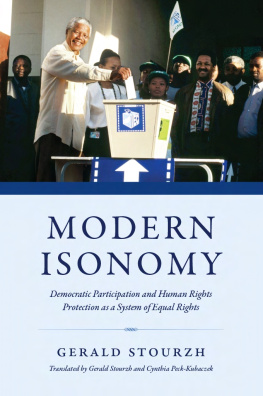

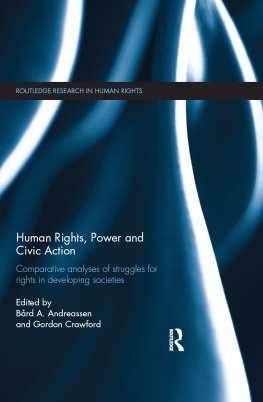

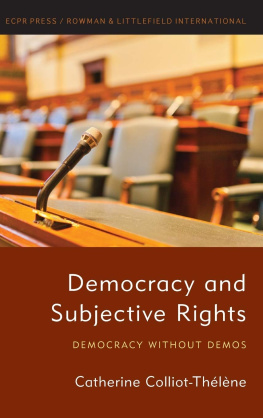
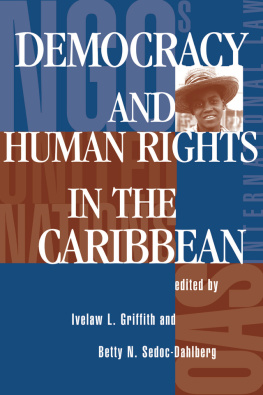
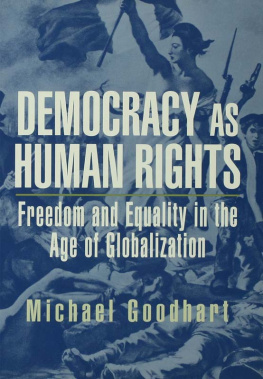

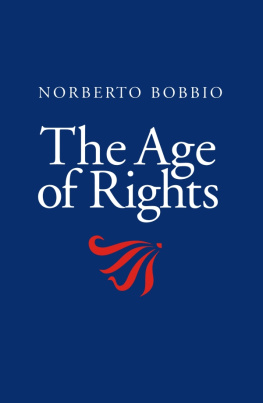
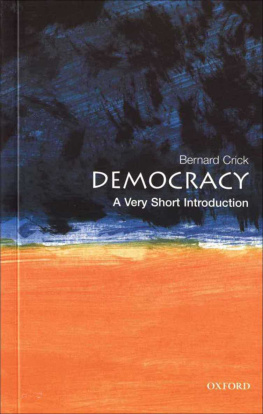


 This paper meets the requirements of ANSI/NISO Z 39.48-1992 (Permanence of Paper).
This paper meets the requirements of ANSI/NISO Z 39.48-1992 (Permanence of Paper).